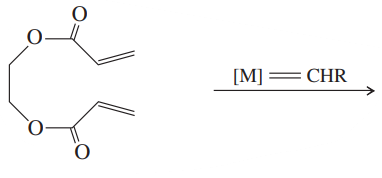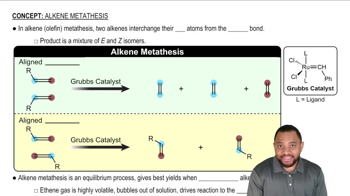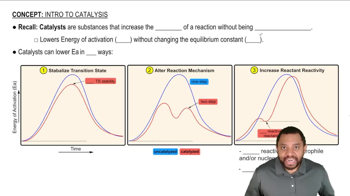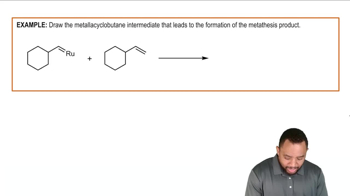Predict the product(s) that would result when the alkenes shown here are allowed to react under the following conditions: (i) HBr; (ii) HCl; (iii) HBr, H2O2 (iv) H2SO4, H₂O (v) 1. Hg(OAc)2, H2O 2. NaBH4 ; (vi) 1. BH3 2. H2O2, NaOH
(d)

 Verified step by step guidance
Verified step by step guidance Verified video answer for a similar problem:
Verified video answer for a similar problem:



 2:15m
2:15mMaster Double halogenation of alkynes. with a bite sized video explanation from Johnny
Start learning